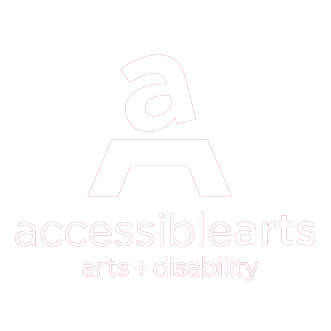Complaints Policy
Policy Statement
Accessible Arts recognises the value of complaints as an important tool in monitoring and responding to stakeholder expectation. In order to assist Accessible Arts to respond appropriately, all forms of complaint need to be documented and assessed as part of an on-going monitoring and improvement process.
Purpose
This policy sets out the responsibility of Accessible Arts to:
- recognise, promote and protect the stakeholder’s right to complain about their interaction with Accessible Arts
- recognise the need to be fair to both the complainant and the organisation or person complained about
- provide a mechanism for responding to complaints in a timely and courteous manner
- determine and implement solutions
- provide adequate resources to support the complaints management process
- record, assess and review complaints on a regular basis to ensure responsiveness and on-going commitment to service improvement.
Definition
A complaint is an expression of dissatisfaction made by a stakeholder/advocate about the service provided by Accessible Arts.
Principles
- Accessible Arts supports the stakeholder’s right to be heard in relation to their interaction with Accessible Arts, and to be supported in making a complaint about the service.
- Complainants have the right to raise complaints, and to have them resolved equitably and fairly, in a way that preserves the dignity of the complainant.
Objectives
- ensure an individual’s right to express a complaint is upheld and respected
- ensure individuals know how they can make complaints
- ensure that with the investigation of complaints, the focus is on continuous improvement of Accessible Arts’ policies and practices
- ensure no victimisation or discriminatory practices occur in the handling of complaints, e.g. reduction or withdrawal of involvement
- ensure that where appropriate all information in relation to the complaint is kept confidential.
Commitment
This policy is endorsed by Board of Directors and is disseminated among staff and stakeholders. The stakeholders right to complain is recognised, and staff will handle and forward complaints to the appropriate area as needed.
Accessible Arts is committed to ensuring:
- we conduct staff training in complaint handling
- all persons connected with Accessible Arts are aware of their right to complain and how to do so
- complaints are handled quickly and as close as possible to their source
- wherever appropriate, all individuals involved in complaint handling treat all information as confidential.
- wherever possible, complaints are resolved by a process of discussion, cooperation and conciliation
- complaints are investigated in a fair, impartial and non-judgmental manner
- no person is victimised or discriminated against because they make or are involved in a complaint. The complaints handling mechanism will be monitored to prevent such practices from occurring.
- both the individual making the complaint (the complainant) and the person against whom the complaint is made (the respondent) receive appropriate information, support and assistance in resolving the complaint
Accessible Arts is also committed to internal review and continuous improvement of its policies and practices.
Procedures & Work Practices
Resources
Staff will be trained in the complaints handling process through information sessions. A summary of complaints will be provided to the directors through the Board reports.
Complaints Handling Process
Complaints will be handled fairly, justly and in a consistent manner, and with the understanding that complainants should not be disadvantaged by the complaint process. Complaints against staff will be directed to the relevant manager and all correspondence and assessments will be confidential. Stakeholders will be kept informed of the progress of their complaint and of the final resolution. Complainants will be advised of avenues for further review of their complaint, if not satisfied with the resolution.
Responsiveness
The Complaints Handling Procedure sets out standard response times and procedures for dealing with complaints, which will be assessed regularly to ensure staff and stakeholders are satisfied with the time frames set and that sufficient time for quality outcomes has been set.
Confidentiality Of Information
All personnel involved in complaints handling treat all information as confidential. This means the name or identity of the person complaining and any other private information will only be given to people who need to know it to deal with the issue.
Documents used in the process of resolving any complaint and the outcome of the investigation are distributed to people who need to know.
Changes To Policy
The Board of Directors, as required, will consider requested changes to the policy.
Disputes
Any disputes regarding the policy will be addressed through the CEO to the Board at the first meeting following the notice of dispute. If the dispute is considered urgent, directors will aim to resolve the matter as quickly as possible.
Review & Consultation Process
This policy will be reviewed by Accessible Arts no less than every three years. In reviewing the policy stakeholders and representatives from agencies will be included in the process and asked for information and advice regarding the implementation and benefits or disadvantages of the policy.
Related Documents
- Complaints Management Guidelines
- Complaints Handling Procedure
- Complaints Record Form
- Complaints Register
- The Community Services Commission
ENDS
